Our Winter Love
_______________________
page originally published on 10 December 2011; latest edit: 8 November 2021
_______________________
(above) Bill Justis and Bill Pursell
(above, left) Justis is best known for his influential 1957 instrumental hit Raunchy, (right) Grady Martin is described in the Wikipedia profile of the artist as “one of the most renowned, inventive and historically significant American session musicians in country music and rockabilly.”
_________________________
Our Winter Love (m. Johnny Cowell, w. Bob Tubert)
 According to the story told in an article by M. C. Antil titled, Song of the Day: Bill Pursell’s “Our Winter Love”, a demo recording of the original composition by Johnny Cowell was mailed to a Nashville publishing company co-owned by legendary session guitarist Grady Martin. The year of composition is not given. The original title of the composition was “Long Island Sound.”
According to the story told in an article by M. C. Antil titled, Song of the Day: Bill Pursell’s “Our Winter Love”, a demo recording of the original composition by Johnny Cowell was mailed to a Nashville publishing company co-owned by legendary session guitarist Grady Martin. The year of composition is not given. The original title of the composition was “Long Island Sound.”
Sometime in 1962, the acetate demo recording by Cowell caught the attention of songwriting partners Bill Pursell and Bill Justis at Martin’s publishing company. Their interest was piqued even more so after Martin mistakenly played the disc for them at the wrong speed (a 78 RPM disc played at 45 RPM), giving the slowed down piano introduction a unique quality. They went to work on creating a recording which would reproduce that effect.
In order to obtain something like the haunting sound they had heard on the acetate played at slow speed, pianist-composer Pursell developed a way of playing the opening piano chords “with very stiff fingers” followed immediately by much softer repetitions. Antil says, “The technique gave the melody what Pursell would later claim was an “icy” sound, and it was soon suggested by someone that the song be renamed Our Winter Love.”
With modifications of the melody by Pursell, a Bill Justis arrangement which borrowed a distorted guitar idea from the 1961 Marty Robbins hit Don’t Worry, and backed by an orchestra directed by Martin, they produced a 1962 recording that was very successful.
________________
Bill Pursell — recorded in 1962; issued, according to 45cat.com, on 2 November 1962 on the single Columbia 4-42619, b/w “A Wound Time Can’t Erase” (B. Johnson)
Single chart positions and personnel, from the above-cited Song of the Day article:
 The song climbed to #9 on the pop charts, and to #4 on the adult contemporary charts. It even climbed to #20 on the R&B charts. Meanwhile the album, which took its name from the hit single, reached #28
The song climbed to #9 on the pop charts, and to #4 on the adult contemporary charts. It even climbed to #20 on the R&B charts. Meanwhile the album, which took its name from the hit single, reached #28
musicians include:
Bill Pursell: piano
Boots Randolph: tenor sax
Harold Bradley: bass
The Anita Kerr Singers: choral vocals
____________
_________________________
selected versions
A lyric by Bob Tubert was added no later than 1963. At least two vocal versions of the song were recorded that year.
- Anita Bryant — Columbia 4-42739 (45cat, Discogs), b/w “Honest John,” issued on 8 Mar 1963
- The Hi-Lites — King 45-5730, b/w “Death of an Angel,”* issued in March 1963
The only other vocal recordings I’ve found so far are the following, each incorporating a variant of the Bob Tubert lyric:
- The Dovells — issued in 1965 on Jamie 1369, b/w “Blue”
- The Lettermen — issued on 26 December 1966 on the single Capitol Records 5813, b/w “Warm” (Jimmy Krondes, Sid Jacobson); also issued on the 1967 album Warm, Capitol Records T 2633 (Mono), Capitol ST-2633 (Stereo)
- The Mercy — final track on the 1969 album Love (Can Make You Happy), Sundi SRLP 803, credited to “The Mercy” — “The Mercy” was a studio construction put together by Sundi Records in an attempt to capitalize on the hit single (#2, Hot 100 and #2, AC) “Love (Can Make You Happy),” recorded by the band Mercy.
- The Sycamore Street Singers — from the 1970 album Bright Down the Middle, (Canada) Ampersand 477-1602
I’ve also included the following instrumental recordings:
- The Sinceres — issued 15 March 1963 in the US on the single Epic 5-9583, as the B-side of “Kookie Ookie
- Robert Maxwell: His Harp and Orchestra — from the 1965 album A Song for All Seasons, Decca DL 74609 (Stereo), Decca DL 4609
- Floyd Cramer — originally released on the 1968 album Floyd Cramer Plays MacArthur Park, RCA Victor LSP-4070
- Leon Russell — from the 1973 album Looking Back, Olympic Records 7112
- Johnny Cowell with members of the Toronto Symphony — recorded at Ontario Place in Toronto, 1978
- Floyd Cramer — issued on the 1978 45 rpm single RCA PB-11432, b/w “For Lover’s Sake,” and also included on the 1979 album Super Hits, RCA AHL1-3209
Other instrumental recordings of the song include orchestral versions by André Kostelanetz, Lawrence Welk, Hugo Winterhalter, Clebanoff, Al Caiola, and Felix Slatkin.
“Our Winter Love” was the title track of the last recorded album, Liberty LST-7287 (Stereo), Liberty LRP-3287 (Mono), by the violin virtuoso and conductro Felix Slatkin, which was released in 1963. However, Slatkin died suddenly of a heart attack a day prior to the scheduled recording of the song. With the encouragement of the president of Liberty Records and Slatkin’s widow the song was recorded as scheduled on 9 February 1963.
Anita Bryant — issued on 8 March 1963 on Columbia 4-42739, b/w “Honest John”
.

The Hi-Lites we are concerned with are described by the site White Doo-Wop Collector as a “pop trio from Toronto, Canada; Harry Harding, Larry Sturino and Jimmy Nolan featuring Bill Holmes on harmonica.” The group evolved through a series of name and personnel changes. Harding began his professional career with a quartet called The Four Emcees. A retrospective of the group’s history at foreveryoungnews.com by Andrew Merey says,
Higgins joined the group in Cleveland in late 1957. With Harding, Higgins, Sturino and the late Iver McIver now on side, the foursome that would prevail through the next two “magic” years had been assembled.
Label changes required new names for The Four Emcees, so they later recorded as The Stereos, The Nobles, and The Hi-Lites. This group is not to be confused with the vocal harmony group from New Jersey, Ronnie and the Hi-Lites, active in the early 1960s.
The Hi-Lites — issued in March 1963 on King 45-5730, b/w “Death of an Angel”
 The following audio file of the recording of Our Winter Love by the Canadian vocal group The Hi-Lites has very poor sound quality. I’ve heard several copies of the recording, all with the same sound issues. The ring of mic feedback is heard periodically throughout, an artifact introduced who knows when. Other issues include a general coarseness of the sound throughout, loud cracks and pops, intermittently out of tune music, fluctuating volume, and at least one discordant voice near the end, on the word “desire.” Nevertheless, it is brilliant.
The following audio file of the recording of Our Winter Love by the Canadian vocal group The Hi-Lites has very poor sound quality. I’ve heard several copies of the recording, all with the same sound issues. The ring of mic feedback is heard periodically throughout, an artifact introduced who knows when. Other issues include a general coarseness of the sound throughout, loud cracks and pops, intermittently out of tune music, fluctuating volume, and at least one discordant voice near the end, on the word “desire.” Nevertheless, it is brilliant.
presently unavailable, 11/8/2021
____________________________
The Dovells — issued in 1965 on Jamie 1369, b/w “Blue” (added on 22 February 2016)
presently unavailable, 11/8/2021
_______________________
The Lettermen — issued on 26 December 1966 on the single Capitol Records 5813, b/w “Warm” (Jimmy Krondes, Sid Jacobson); also issued on the 1967 album Warm, Capitol Records T 2633 (Mono), Capitol ST-2633 (Stereo)
.
.
The Mercy — last track on side 2 of the 1969 album Love (Can Make You Happy), Sundi SRLP 803
presently unavailable
________________________
The Sycamore Street Singers — from the 1970 album Bright Down the Middle, (Canada) Ampersand 477-1602
.
OUR WINTER LOVE
(m. Johnny Cowell, w. Bob Tubert)
as sung by the Hi-Lites (back vocals excluded) 1963*
Love,
Born in wintertime,
Warms this heart of mine
With dancing fire
Of sweet desire
We’ve found our winter love
Eyes,
Cold as fallen tears,
Brought me chilly fears
Of loneliness
How could I guess
We’d find our winter love
Now,
Now the world is warm,
Warm through coldest storms
We’ve found a fire
Of sweet desire
We’ve found our winter love
lyric transcribed by doc (Jim Radcliff), c. 2011; edited, 2013; organization and punctuation revised, 2016
__________________
Selected instrumental recordings
The Sinceres — An instrumental recording by The Sinceres was issued 15 March 1963 in the US on the single Epic 5-9583, as the B-side of “Kookie Ookie.” According to Discogs.com, in France it was issued in 1961 on the single Columbia SCRF 640, as the B-side of “Kookie Ookie,” but in this case the reported release date is obviously wrong since the Bill Pursell recording wasn’t made until 1962, and, according to the M. C. Antil article cited above, when Johnny Cowell’s demo recording of his instrumental number arrived at Grady Martin’s Nashville publishing company in 1962 it bore the title “Long Island Sound.”
Thanks again to visitor Anonymous, who in 2016 comments informed me about this recording.
.
Robert Maxwell: His Harp and Orchestra — from the 1965 album A Song for All Seasons, Decca DL 74609 (Stereo), Decca DL 4609
.
Floyd Cramer — from the 1968 album Floyd Cramer Plays MacArthur Park, RCA Victor LSP-4070
.
Leon Russell — from the 1973 album Looking Back, Olympic Records 7112
This recording has, for unexplained reasons, been included on recent digital re-releases of the Glen Campbell album The 12 String Guitar of Glen Campbell, originally released in 1966, though no early version of the album that I’ve seen contains the track. In fact it replaces the track “Walk Right In” from the original on these digital re-releases. The track has also been included on various other digital release albums on which the instrumentation for the track is credited to Leon Russell (harpsichord) and Glen Campbell (12 string guitar). That Campbell may have been incorrectly credited in these cases is attested to by the fact that in listening to the track one detects no evidence that a 12 string guitar is among the instruments being played on the recording. Also, the lists of musicians credited for contributing to the album on which the track was released, the 1973 Leon Russell album Looking Back, at pages on the album at Discogs.com and Wikipedia, do not include Glen Campbell. The only person credited with playing guitar on the album is Tommy Tedesco.
.
Johnny Cowell with members of the Toronto Symphony — recorded at Ontario Place in Toronto, 1978
The arrangement is clearly not akin to the original, which is described in the mcantil.com article cited above as uptempo. Rather, Cowell seems to have adopted a tempo similar to that of Pursell’s 1962 recording. Video provider Zarudny84 indicates that Cowell had composed the piece in response to a request for a trumpet solo for Al Hirt to record in upcoming sessions.
.
Floyd Cramer — issued on the 1978 45 rpm single RCA PB-11432, b/w “For Lover’s Sake”
disagreement regarding release date:
- 1978 — according to Discogs.com
- January 1979 — according to 45cat.com: promotional (JH-11432) , general (PB-11432)
I’ve included this recording among the instrumental versions since only portions of its vocalized part contain words, and because, except for one line, the words sung are only vaguely similar to those in the original lyric. The entire lyric in this version:
We’ve found our winter love
You came like falling snow
Soft like falling snow
Into my heart
We’ll never part
We’ve found our winter love
We’ve found our winter love (repeat and fade)
- recording presently unavailable, 11/8/2021
_______________________________
* Comparative analysis of significant differences in the words sung in the six known vocal recordings of “Our Winter Love”:
Eyes, cold as fallen tears, brought…
In the second section of the lyric, the first two words sung by Anita Bryant (1963) and the Lettermen (1966) appear to be “Ice cold.” In the version by the Hi-Lites (1963) the two words are instead “Eyes, cold.”
The word which follows “tears” in the second section is typically given in online lyrics sites as “grow.” I believe this is a transcription error, and the correct word is “brought,” though neither Bryant or the Lettermen enunciate the word very clearly, especially the “t” ending. The word “grow” instead of “brought” would leave us with the peculiar phrase “as fallen (or falling) tears grow” — we usually speak of tears growing before they fall. The word “brought” in this location is more clearly heard in the 1965 recording by the Dovells, and in the 1970 recording by the Sycamore Street Singers, than in the Bryant, Hi-Lites, and Lettermen versions.
Another error commonly found in online lyric transcriptions is the word “bechilling” (or “be-chilling”) instead of the phrase “me chilling.” This error is probably the result of a transcriptionist’s attempt to fit the correct phrase (“me chilling”) with the incorrect transcription of the previous word (“grow” instead of “brought”). The phrase “Me chilling” begins the third line of the second section in the recordings by Anita Bryant, the Dovells, the Lettermen, and the Sycamore Street Singers, while the Hi-Lites sing instead “me chilly,” though in the latter case the phrase doesn’t begin a line, as I will explain below.
Below are some relevant Google search results (all updated on 16 October 2020), which suggest to me the prevalence on the web of inaccurate transcriptions of the words sung in the vocal recordings of “Our Winter Love” featured in this page. None of the six commercial recordings with vocals that I’ve listed above includes in the words sung either the word “grow,” the phrase “tears grow,” the word “bechilling,” or the phrase “be chilling.”
- “Our Winter Love” lyrics “tears grow“ — 278 results
- “Our Winter Love” lyrics “tears, grow” — 269 results
- “Our Winter Love” lyrics “bechilling“ — 98 results
- “Our Winter Love” lyrics “bechilling fears” — 86 results
- “Our Winter Love” lyrics “be chilling“ — 32 “most relevant” results (4,940 with omitted results included)
Conversely, searches for the corresponding actual phrases sung in the recordings: “tears brought,” “me chilling” (most recordings), “me chilly” (Hi-Lites), produce very few results.
- “Our Winter Love” lyrics “tears brought” (Bryant, Hi-Lites, Sycamore Street Singers) — 3 relevant results, including this page
- “Our Winter Love” lyrics “me chilling” (also “Our Winter Love” lyrics “me-chilling”) (Anita Bryant, Dovells, Lettermen, Sycamore Street Singers) — 1 relevant result, this page
- “Our Winter Love” lyrics “me chilly” (Hi-Lites) — 2 relevant results, this page and one other
In addition to the different beginning (“Eyes, cold…” rather than “Ice cold”), the Hi-Lites version is also different than the Bryant version which preceded it, as well as the Lettermen version, in the way that the lines of the second section are broken up. The words “cold” and ” brought” begin rather than end lines in the second section of the Hi-Lites version, a shift which results in the lines saying something different, and much more coherently, than the corresponding lines in the better known versions. The Hi-Lites break the lines in consideration as follows:
Eyes,
Cold as fallen tears,
Brought me chilly fears
Of loneliness
These lines form a sentence. In the second line, “cold as fallen tears” is an adjective phrase which modifies the subject, “Eyes.” Remove the modifier and we’ve got “Eyes…brought me chilly fears of loneliness.” A certain type of eyes had this effect. What type? Eyes which were “cold as fallen tears.”
The first four lines of the second section of Anita Bryant’s version also makes sense, though the word “brought” comes at the end of the second line of the section rather than at beginning of the third line. The lines appear to go as follows:
Ice cold,
As falling tears brought
Me chilling fears
Of loneliness
The second section of the other four vocal versions:
- The Dovells (1965) — same as in Bryant’s version
- The Lettermen (1966) — almost the same as Bryant’s; it appears to go:
Ice cold,
As fallen (or “fallin’”) tears brought
Me chilling fears
Of loneliness
- The Mercy (1969) — The second and third lines are significantly different than those in all of the other cases in consideration. Their version seems to go:
Eyes cold,
And softly tears fall
We share these tears
Of loneliness
- The Sycamore Street Singers (1970) — apparently the same as the Lettermen version, the only question being again whether the second word in the second line is “fallin'” or “fallen”
We’d find vs. We’d found…
In the 1966 recording by the Lettermen, the final line of the second section appears to be “We’d found our winter love.” This doesn’t make as much sense in the context of the preceding lines (which describe the despair before love was found) as “We’d find our winter love,” as sung by the Hi-Lites (1963), and by the Sycamore Street Singers (1970). In the first and final sections of the Hi-Lites and Sycamore Street Singers versions, the combination of the auxiliary verb “have” and the verb “found” is in the present perfect form, “have found.” So the tense of the “found” line alternates, going from present perfect in the first section, to past perfect in the second, and back to present perfect in the third.
The world is warm vs. …warm, warm and coldest storms vs. cold and storm
There are differences in the final sections of the versions by Anita Bryant, the Hi-Lites, the Lettermen, the Mercy, and the Sycamore Street Singers (final section of the Dovells version not included in the incomplete audio clip linked to above). Here are some of those I’ve detected:
1. The word that begins the final section, “Now,” is repeated in the versions by the Hi-Lites, Anita Bryant, and the Sycamore Street Singers, but not in the versions by the Lettermen and the Mercy.
2. The Hi-Lites sing the second and third lines of the final section with a different break between them than found in the other four versions — the word “warm” finishes the second line (or phrase) and begins the third, rather than being repeated in the second line as in the versions by Bryant, the Lettermen, the Mercy, and the Sycamore Street Singers.
3. The third line of the final section in the versions by the Hi-Lites, Anita Bryant, and the Sycamore Street Singers ends with the phrase “coldest storms,” which imperfectly rhymes with “warm,” the last word in the previous line. The Lettermen sing instead “cold and storm.” The Mercy also appears to sing “cold and storm.”
 4. The fourth and fifth lines of the final section are unique in Bryant’s version:
4. The fourth and fifth lines of the final section are unique in Bryant’s version:
We’ve fed the fire
Of sweet desire
5. Like its second section, the final section in the version by the Mercy is different than that of all of the other versions. It appears to go as follows:
Now
The world is warm, warm
Through cold and storm
We’ve found our love
Our sacred love
We’ve found our winter love
__________________















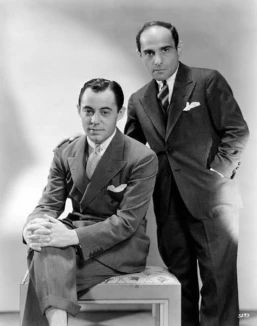

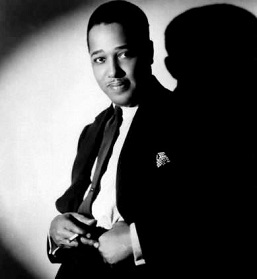


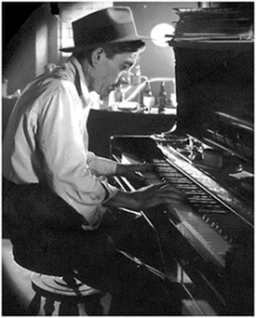
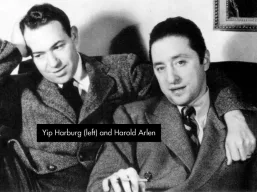
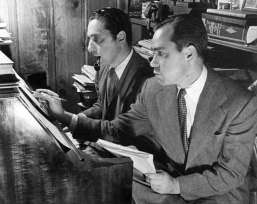



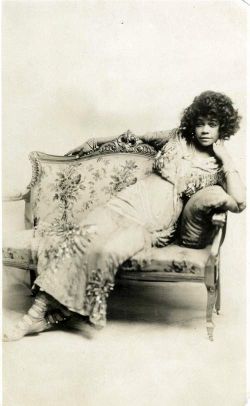





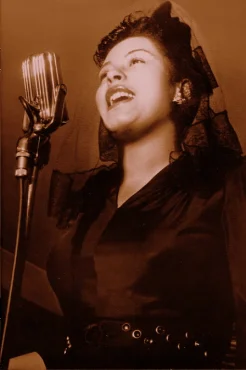




Mar 18, 2013 @ 14:20:03
Hi! Thanks for all the great information. I have a friend looking for the sheet music (piano/vocal) for this (I think my best bet would be The Lettermen’s version), but it doesn’t seem to be in print anywhere. Any ideas? Thanks!
LikeLiked by 1 person
Apr 11, 2013 @ 01:48:56
Amanda,
Sorry for the long delay in response, a regrettable oversight. Most of my sheet music searches involve works which are in the public domain as a result of their advanced age. I ordinarily begin with simple Google searches as might anybody.
A copy in The National Library of Australia is listed by Trove at http://trove.nla.gov.au/version/41100622, with the descriptive notes
— For voice and piano. Includes chord symbols.
— “Piano and vocal edition”
— “Successfully introduced by Anita Bryant on Columbia Records…”
Regards, Jim
LikeLike
Sep 10, 2018 @ 16:52:38
That is, I’m not fond of the version of the lyric sung by the Lettermen because I think the lyric version sung by the Hi-Lites is more coherent and logical than those sung by Bryant, the Dovells, the Lettermen, and the Sycamore Street Singers. However, the more logical and coherent version of a lyric is not necessarily the closest to the original lyric, that written by the lyricist.
LikeLike
Aug 17, 2013 @ 08:42:23
Very wonderful, intelligent, and articulate delving into this song’s history. Do you happen to know if the backing vocals of Bill Pursell’s recording are the Anita Kerr singers? The CD liner notes of the original Columbia/Sony issue don’t specify, in my recollection. Thanks.
LikeLiked by 1 person
Aug 17, 2013 @ 21:40:24
Thanks, Bob
According to the cited article by M. C. Antil, on the Pursell recording,
Thanks for the assist. I’ve added the Anita Kerr Singers to the musician credits.
doc
LikeLike
Dec 27, 2015 @ 21:00:23
where can you buy the music to play our winter love and the cd to play it is so beautiful and haunting to me
LikeLiked by 1 person
Dec 30, 2015 @ 11:58:01
Hi colleen,
1962 Bill Pursell recording of “Our Winter Love” (song), MP3 format:
Hope that helps.
Regards, doc
LikeLike
Feb 05, 2016 @ 09:50:24
Do you know the Epic 5-9583?
They are The Sinceres with ” Our winter love” I’m not sure if Anitta Kerr are part of the Sinceres
LikeLiked by 1 person
Feb 05, 2016 @ 23:27:52
Anon,
Nice find. Thanks. I was unaware of that recording, and will be looking for a copy of it to post here. The A-side of the single, “Kookie Ookie,” is described in an eBay advertisement on the single as a “female uptempo doo wop.” What makes you think the Sinceres might be related to Anita Kerr?
Regards, doc
LikeLike
Feb 08, 2016 @ 21:30:13
i would like to order the song our winter love by bill pursell they say it is available by anita bryant i just want the record or cd i have ordered the sheet music not arrived yet.can you hekp me get this colleen kittrell
LikeLiked by 1 person
Feb 07, 2016 @ 00:07:21
If you want I can send you, that song, I do the same question, but Our winter love by the Sinceres it’s instrumental song, not doo wop, the side [A] yes is doo wop.
Why? I don`t know
See the covers here
LikeLiked by 1 person
Feb 08, 2016 @ 20:19:14
Anon,
Yes, please do send a copy of the recording. Hopefully, it will be an in an audio format that I can use on a WordPress.com (free) account. Thanks much for the labels. Please excuse the fact that in order that the size could be reduced I’ve changed the URLs of the images. However, I’ve linked each of them to the Photobucket pages they were originally linked to, respectively.
Question about which is the A-side:
I’ve reversed the order (A and B sides) that you originally gave above, to agree with the order given by various reliable sources such as RateYourMusic.com, the discography site globaldogproductions.info, Goldmine Price Guide for 45 RPM Records, for the two sides of (US) Epic 5-9583. The Caravaneros guide you provided also says, on page 84, “Our winter love es la cara B del cuarto. Cara A: Kookie ookie.” I did, however, find that some French discs may have been released with the order reversed, and I wouldn’t be surprised to find that to be the case for releases in other countries.
Regards, doc
LikeLike
Feb 07, 2016 @ 00:27:06
Don Law and Frank Jones are typical of Johnny Cash, Johnny Horton, Ray Price and others and was normal at that time included in the B-side instrumental with some studio musicians and this is one of those cases.
Although the song does not seem at first glance if it is “our love winter”
You can see more information here http://es.calameo.com/read/000104175547bf0089185
In the page 84 “serie dorada nº 0479a” sorry it’s in spanish
LikeLiked by 1 person
Feb 08, 2016 @ 20:25:47
Anon,
Thank you very much for the wonderful book.
Understood. Thanks for this helpful information.
Regards, doc
LikeLike
Feb 08, 2016 @ 22:40:09
colleen kittrell,
It’s not clear whether you want the recording by Bill Pursell, or that by Anita Bryant, or both.
Regards, doc
LikeLike
Jan 09, 2020 @ 03:48:34
The Sinceres — An instrumental recording by The Sinceres was issued 15 March 1963 in the US on the single Epic 5-9583, as the B-side of “Kookie Ookie.” According to Discogs.com, in France it was issued in 1961 on the single Columbia SCRF 640, as the B-side of “Kookie Ookie,” but in this case the reported release date is obviously wrong since the Bill Pursell recording wasn’t made until 1962, and, according to the M. C. Antil article cited above, when Johnny Cowell’s demo recording of his instrumental number arrived at Grady Martin’s Nashville publishing company in 1962 it bore the title “Long Island Sound.”
Thanks again to visitor Anonymous, who in 2016 comments informed me about this recording.
LikeLike
Mar 27, 2021 @ 07:31:31
Love this song…. but after what I might describe as an intro there is a very deep base note that sort of transitions to the main body of the song. I want to know what instrument was played to create that unusual sound. Is it stringed or percussion…. I just can’t figure it out & I’ve never seen an orchestra play the song. Please help!
LikeLiked by 1 person
Mar 27, 2021 @ 08:41:59
Jon,
Hi. If you listen again you’ll notice that in the 1962 Pursell recording a melody featuring deep, fuzzy notes is played throughout the section following the intro. The distortion is most notable in the single bass notes at the beginning of the section, but they continue for eleven of the twelve bars in the section, according to my count. The article Song of the Day: Bill Pursell’s “Our Winter Love”, which I’ve referred to in the description at the top of the page, claims that this sound was created by feeding a combination of bass guitar and saxophone playing the same melody through a faulty channel on a stereo board.
~doc
LikeLike
Sep 15, 2021 @ 18:05:29
I love this beautiful song I was a teen and I remember when it came out
In the winter when snow is falling and cold
It takes me back to that time when life was s
low and oh so mellow just me and my girlfriend
enjoying being young and not a care in the world
If only you could go back
LikeLiked by 1 person
Sep 15, 2021 @ 20:26:44
Hi Myron,
Yes, “when life was so tender, that dreams were kept beside your pillow.”
LikeLike
Sep 15, 2021 @ 20:27:59
LikeLike